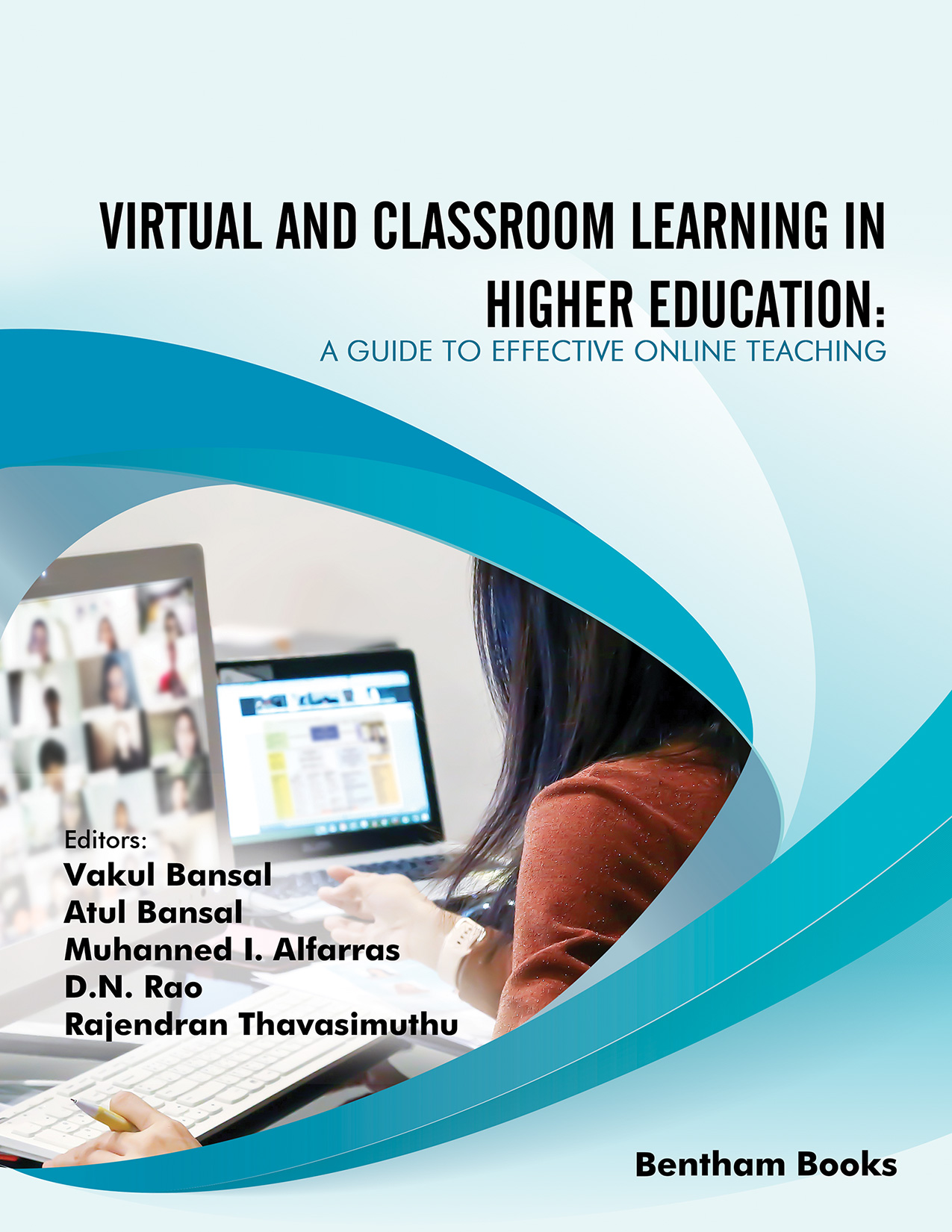Covid-19 has changed the whole scenario of the education sector. Till now, virtual learning/online learning platforms were used to increase the interest of students in different subjects and to learn something apart from the course curriculum in educational institutions. Virtual learning was used as a support to the available physical infrastructure. But since April 22, 2020, this scenario changed, and by default, virtual learning has become the main platform for teaching and learning. All the classes are now being delivered online in all the higher educational institutions. The majority of the higher education institutions across the world practice blended learning or a combination of traditional and e-learning. However, the challenges of the coronavirus crisis have brought the higher education providers in a situation to restructure the philosophy of teaching, learning and assessment without compromising with the quality and serving the interests of the learners in best possible ways. Online teaching is the best way to combat the covid crisis, where social distancing is the only way to eradicate covid. Educational institutions have adopted virtual learning across the world. For higher educational institutions, senior management has taken up the responsibility to supervise and monitor the effectiveness of virtual learning towards achieving strategic goals. The whole onus is on the course instructor to design the contents and delivery of the course in such a way as to promote self-learning and better engagement in the class. Effective knowledge starts with learner’s engagement. Hence, students’ engagement has emerged as a fundamental subject in Higher Education in the recent past. In turn, it has become a pervasive indicator for measuring the education quality of institutions.
Various researches on the relationship between student engagement and learning reveal that engagement is a predictor of academic achievement, student performance, and educational development. Engaged students exhibit interest to study, active attention, motivation, and participation, while their disengaged counterparts demonstrate poor motivation, boredom, low grades, and passiveness. As students’ performance remains a top priority for educators and engaging students is a challenge faced by lecturers all over the world, many efforts on how higher education might further inculcate and strengthen student engagement have been explored. With the increased exposure to the online world, all the traditional systems are being transformed into a virtual world like online shopping, banking, booking tickets, watching movies, etc. Hence now the education system is no more an exception to it. In the past two decades, the government has played a pivotal role in boosting E-learning. It initially started with satellite-based classrooms and subsequently followed by NKN (National Knowledge Network), NMEICT (National Mission on Education through Information and Communication Technology). It has also created e-access to information and library databases like INFLIBNET (Information and Library Network). It is also predicted that it shall create a new paradigm of National Academic Credit Bank (NACB), which shall ultimately transform the concepts of new generation degrees in the overall education system.
The current pandemic has introduced everyone to new normal not only via increased hygiene but transformed the learning process too. The MOOC (Massive Open Online Courses) gained momentum after this pandemic. After the immediate announcement of lockdown, all the schools and colleges were shut which forced the students to return to their native; this period also brought a milestone in academics. It was a drastic change overnight with the pandemic, and all the educators and learners were forced to equip themselves as they were all at the culmination of the academic year. The major questions posed before educators were - How can data be transformed into knowledge? How to reach them, so it doesn’t compromise the quality of the learning process in face to face lectures and How to get immediately equipped with this new technology? The ones who especially lack experience in technology faced major issues. This posed a big challenge to all the institutions and administrations for efficient delivery of learning, especially the ones who lacked organized and efficient online infrastructure. It was also supposed to ensure impeccable learning as the academic year was about to be completed.
It was again a challenge to enthrall students in the current scenario as their mental health was also affected. So many questions, but gradually, Virtual learning has now become the new ritual. The Internet has made it possible to reach every corner of the world, and educators and researchers have adapted to this virtual world as no other option was left to them. In contrast, it was combating with minimal infrastructure resources that was the biggest challenge as well bounty opportune to the IT sector, as many software professionals bolstered to bridge the gap created by the current pandemic by developing various new applications. Some of the applications or platforms used for online lectures include - WebEx, Zoom, MS Team, Google Meet, Google Classroom, etc. This also proved to be an overnight cost to the schools and college institutions as immediately those licenses of the software were bought to keep the learning going without disruptions. Though the pandemic is transitory, it has given new milestones in academics as it was a meteoric development in the educational system. With this drastic development in the education system, which moved towards e-world, an attempt is made to study and check if traditional “brick and mortar” can lose its strength and possibility of being replaced with the online mode of teaching. An in-depth analysis is made to find out how the current generation is experiencing online learning and what challenges does it pose, also the level of acceptance in comparison to the face to face learning.
Vakul Bansal
Principal
J.V. Jain College (Affiliated to Chaudhary Charan Singh University),
Praduman Nagar, Saharanpur,
India
Atul Bansal
College of Business Administration
University of Bahrain
Kingdom of Bahrain
Muhanned I. Alfarras
Department of Computer Communication Engineering,
Gulf University,
Kingdom of Bahrain
D.N. Rao
Shri Venkateshwara University
Venkateshwara Nagar, Rajabpur Gajraula
Amroha, U.P
India
Rajendran Thavasimuthu
Makeit Technologies (Center for Industrial Research),
Coimbatore, Tamil Nadu
India

